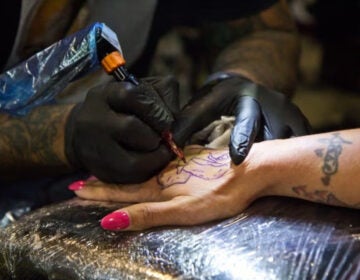Expectations of early death push Philly youth toward crime, study finds
A sobering new study finds that many low-income Philadelphia youth don’t expect to stay alive for very long.
Alex Piquero, a criminology professor at the University of Texas at Dallas, studied 700 Philly young people. He wanted to know whether kids who believe they’ll live long lives are less likely to engage in serious and frequent criminal activity. “Kids who saw themselves dying earlier in their lives were, A, more likely to offend and, B, were less likely to consider the long-term consequences of their actions,” he said. Boys were more likely than girls to have a grim outlook, and the pessimism was most prevalent in poor neighborhoods.
“We tracked their criminal behavior for seven years after that period, and then we linked up that view about what age they would live to, to their continuing offending patterns. At the end of the study, 45 of the kids died,” Piquero said. “A majority of them of non-normal causes.”
Piquero acknowledges these findings may not be surprising.
“But they were confirmatory because a lot of the qualitative research in the social sciences with kids who lived on the streets had indications of this kind of phenomenon,” he said. “But no one had ever been able to empirically demonstrate it over a long period of time within a sample of serious adolescent felony offenders which is what we were able to.” The seven-year study started in the early 2000s and also included youth in Phoenix. Piquero hopes the study, called “Take My License n’ All That Jive, I Can’t See … 35,” will encourage people to support good schools and job opportunities for kids.
WHYY is your source for fact-based, in-depth journalism and information. As a nonprofit organization, we rely on financial support from readers like you. Please give today.




